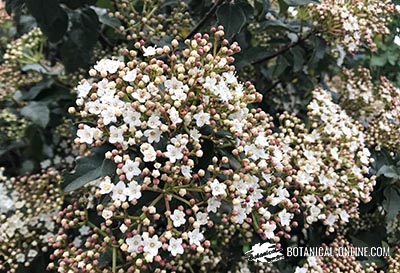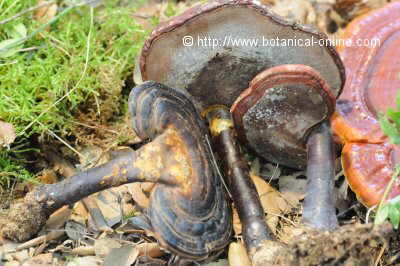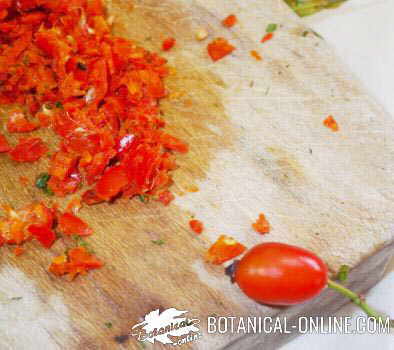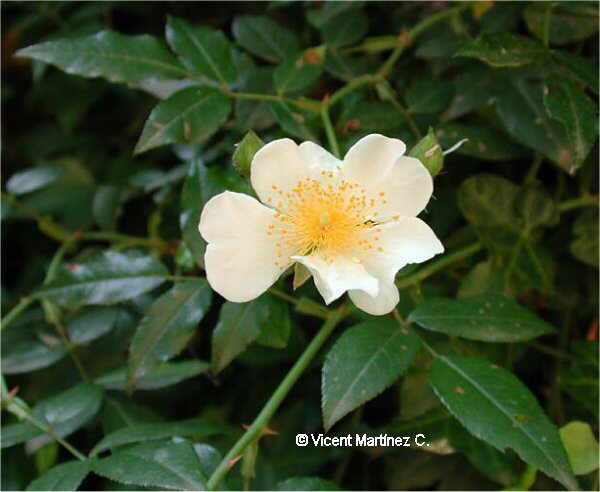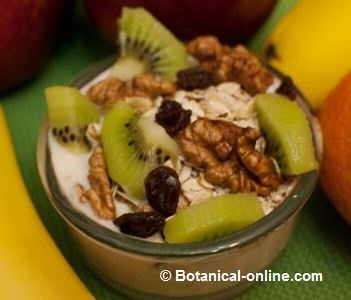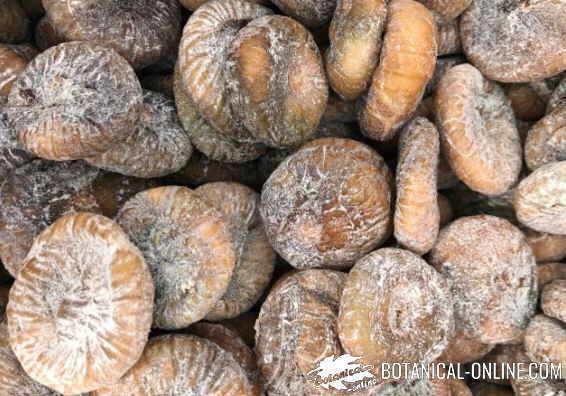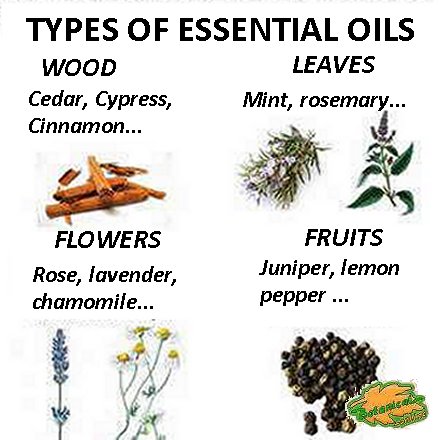Contents
- 1 Homemade natural anti-inflammatories
- 1.1 What are anti-inflammatory herbs?
- 1.2 Differences between natural and pure anti-inflammatories
- 1.3 Home anti-inflammatory plant remedies
- 1.4 Remedies in external use
- 1.5 How to use natural anti-inflammatories?
- 1.6 THE BEST ANTI-INFLAMMATORY MEDICINAL PLANTS
- 1.7 Turmeric, powerful natural anti-inflammatory
- 1.8 How to get the benefits of turmeric?
- 1.9 Anti-inflammatory properties of ginger
- 1.10 Chile or hot pepper, natural anti-inflammatory
- 1.11 Olvanil, anti-inflammatory of olive oil and chile
- 1.12 Garlic as anti-inflammatory
Homemade natural anti-inflammatories
What are anti-inflammatory herbs?
Anti-inflammatory herbs are those that have properties to reduce swelling and promote blood circulation and tissue irrigation. Many of the plants used are also analgesic and help relieve pain.
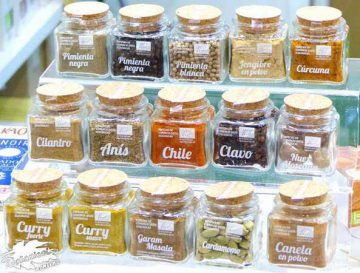
Differences between natural and pure anti-inflammatories
The main advantage that anti-inflammatory plants have over medicines is that, since they contain a great variety of compounds, it could be said that their effect is more physiological or modulable than that of chemical or pure medicines.
Plants have different active components, capable of intervening in different points of the inflammatory cascade, unlike chemical or pure drugs, whose effect is usually limited to acting on one or two substances of the substances that cause inflammation.
For example, turmeric, one of the best anti-inflammatory plants known, has more than 5000 active chemicals. Its effect is not only to reduce inflammation, but also to increase antioxidant genes and stimulate the body’s natural defenses against inflammatory processes.
For the same reason, it has been recommended that any drug treatment be accompanied by abundant plants, whether aromatic herbs or spices, or with abundant vegetables in the diet, because the components of the vegetables help to purify the body and improve the effect of any anti-inflammatory
Home anti-inflammatory plant remedies
Plants against inflammation are used both internally and externally, on the affected area. In internal use, they are useful in the treatment of intestinal inflammations, such as colitis or diverticulitis. In addition, the ingestion of some principles can also help soothe pains in localized areas, such as joints or muscle aches.
Remedies in external use
Applied on the skin, in the form of ointments, cataplasms or massage oils, the plants exert more local properties and are useful especially in case of joint pain, arthritis, carpal tunnel syndrome, contusions or bruises.
How to use natural anti-inflammatories?
It is recommended to consult with your doctor before applying natural anti-inflammatory remedies, especially if you take some type of medication, as there may be contraindications. In addition, it is the doctor who must determine what type of treatment is the most convenient, according to each particular case.
THE BEST ANTI-INFLAMMATORY MEDICINAL PLANTS
Turmeric, powerful natural anti-inflammatory
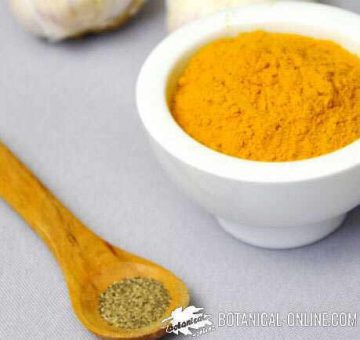
Turmeric (Curcuma longa) has powerful anti-inflammatory properties and is one of the essential supplements for all those situations that require a natural anti-inflammatory.
It has been shown in scientific studies that, in some cases, turmeric is as effective as some anti-inflammatory drugs, with the advantage of not presenting the contraindications or adverse effects of these drugs.
These anti-inflammatory properties empower it for disorders or diseases where there is inflammation, carpal tunnel syndrome, menstrual pain, intestinal diseases, Crohn’s disease, colitis, irritable bowel syndrome, obesity, arthritis, etc.
How to get the benefits of turmeric?
Turmeric is a spice and, as such, it can always be added in any recipe. It is recommended to combine it with black pepper because piperine greatly increases the absorption of the active principles of turmeric, and therefore enhances its properties. An example of preparation is the turmeric golden milk.
In case of illness, to obtain the anti-inflammatory effects, it is more appropriate to take the turmeric in the form of an extract. (* See: How to take turmeric)
Anti-inflammatory properties of ginger
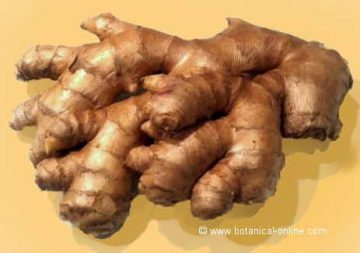
Ginger (Zingiber officinale) is one of the best homemade anti-inflammatories and analgesics.
Ingestion of this food reduces swelling and mitigates pain. The rhizome of the plant is used, which is rich in essential oils and active ingredients.
(Infusion of ginger: 10 g of powdered ginger distributed 2 times a day / Take in capsules of extract according to the leaflet)
Chile or hot pepper, natural anti-inflammatory
One of the best known anti-inflammatories is capsaicin, the component that gives the spicy flavor to hot peppers or chillies (Capsicum spp.).
Capsaicin, and therefore the spicy flavor of chili peppers, has been associated with numerous health benefits, including a preventive and protective effect on obesity.
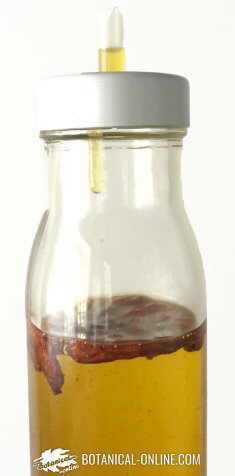
There are creams in external use that have capsaicin, with analgesic properties, but the truth is that this substance is also a good anti-inflammatory for internal use.
Olvanil, anti-inflammatory of olive oil and chile
Olvanil is a powerful anti-inflammatory that is obtained from the maceration of virgin olive oil with hot pepper.
Transamidation of capsaicin occurs, which is transformed into N-oleylvanillamine (olvanil). It is important that they are organic ingredients!
Garlic as anti-inflammatory
Garlic (Allium sativum ) is a real food medicine, with cholesterol-lowering, circulatory, diuretic, anti-inflammatory and antioxidant properties.
It should be eaten raw and crushed, because in contact with oxygen is when the medicinal principles are formed.
![]() More information on natural anti-inflammatories
More information on natural anti-inflammatories

